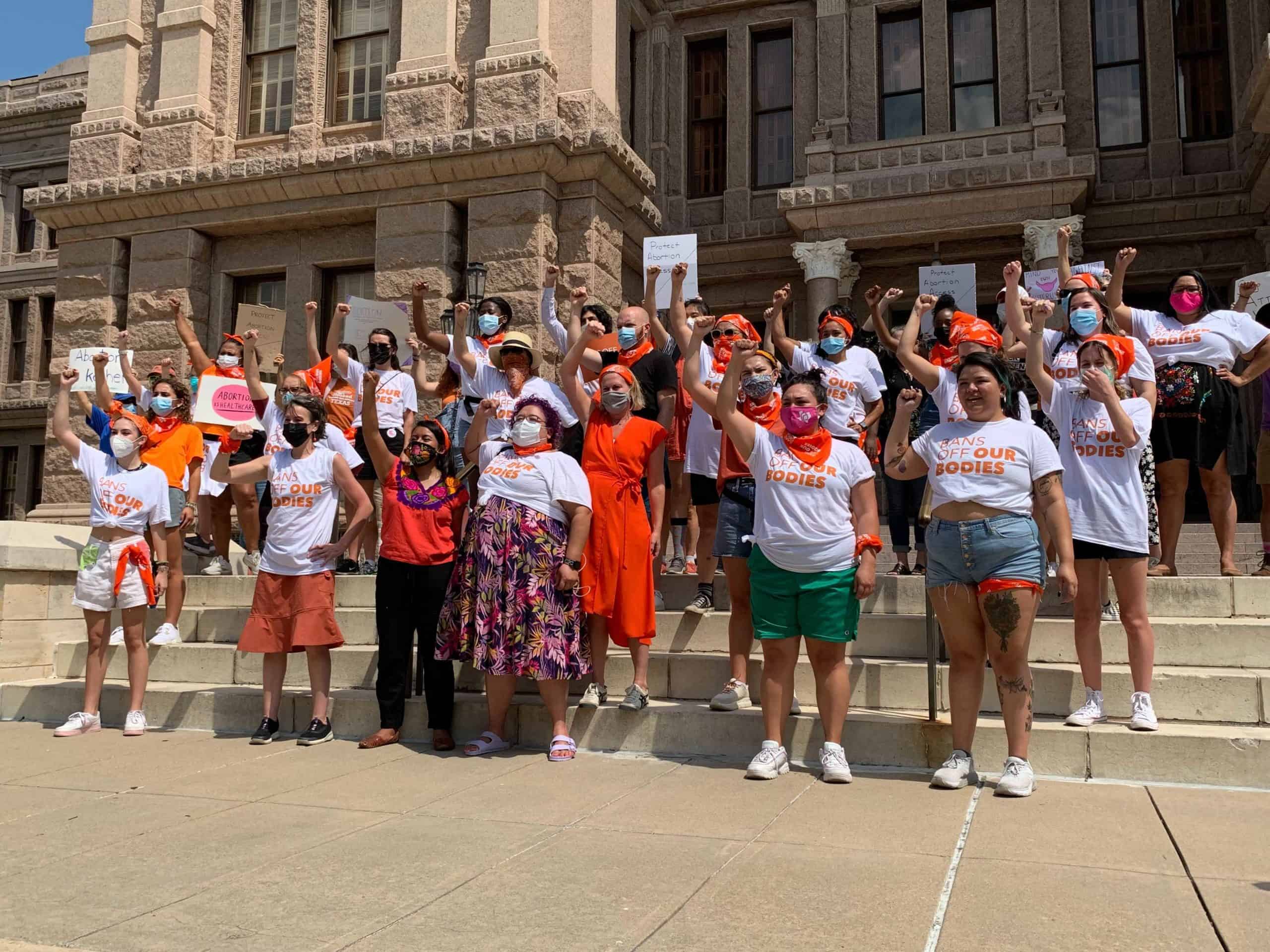Texas’ new anti-abortion law is in full effect after the United States Supreme Court, in a 5-4 vote, refused to block SB 8, a bill banning abortion after six weeks. The law also awards private citizens $10,000 for successfully suing abortion providers that violate the law.
According to reports, SB 8 is the most restrictive law in the U.S and will impact millions of Texans across the state. In response to the law, activists and organizers wanted to share a clear message to the government.
The Signal spoke with Progress Texas Advocacy Manager Diana Gomez on the organization’s “Bans Off Our Bodies” performance art protest that took place Wednesday at the Austin Capital.
“Showing up as an activist doesn’t just look like holding a protest sign or testifying at the Capital,” Gomez said. “Those are all amazing ways for folks to get involved. Activism can also be and should be art as well.”
With a steady drum beat in the background, the Progress Texas activists stood at the steps of the state Capitol and chanted these key statements: Abortion is healthcare, my body is my own, its freedom, its liberation, its our right, tu lucha es mi lucha: your fight is my fight.
“People who believe in accessible, essential, time sensitive health care that is abortion care are everywhere,” Gomez said. “So we want to show a physical manifestation of our bodies rising up, standing up for ourselves and showing up in numbers.”
Furthermore, Gomez said this chant was inspired by a 2019 Chilean protest song “Rapist in your Path” which is about rape culture and victim shaming in Latin American countries.
“It was so powerful it was just a ton of women and allies together denouncing the state, their country, the government for basically creating a very oppressive environment for women,” Gomez said. “This is sort of a nod and an homage to them.”
Gomez also highlighted the racial disparities in this bill specifically for low-income, rural, and minority communities.
According to a healthcare study by KFF, Hispanic and Native Americans have the highest uninsured rates in the country. So, in Texas, this law will directly affect Latinx women in different regions.
For example, a female seeking care in the Rio Grande Valley will have to travel over 9 hours to the nearest clinic in Louisiana.
“What a lot of folks don’t realize is that people who are undocumented in the Rio Grande Valley don’t have that same option,” Gomez said. “And that is because there are checkpoints everywhere. It will make obtaining an abortion even that more difficult for them and it will put them in very dangerous spots.”
Because of the SCOTUS decision, SB 8 instantly became national news and the fate of Roe v. Wade came down to a 6-3 majority conservative bench. Nevertheless, Gomez said she hopes the protest and the movement inspires people to keep pushing for reproductive rights.
“My message to women, to trans folks to non-binary people that are deserving of abortion care is that this isn’t the end,” she said. “Just like we’re helping each other through a pandemic when our state isn’t there for us, we will be there for each other.”
Photo: Progress Texas
Kennedy is a recent graduate of the University of St.Thomas in Houston where she served as Editor-in-Chief of the Celt Independent. Kennedy brings her experience of writing about social justice issues to the Texas Signal where she serves as our Political Reporter. She does everything from covering crime beats, Texas politics, and community activism. Kennedy is a passionate reporter, avid reader, coffee enthusiast, and loves to travel.





